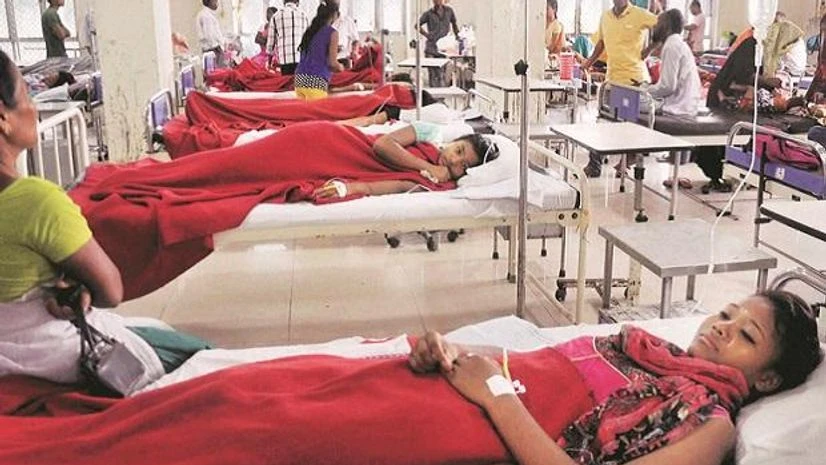Not discharging a patient or declining to hand over a body to relatives by hospitals over payment disputes may soon become an offence if a charter on patients' rights released by the Union Health Ministry comes into force.
According to the draft of Patient Charter, hospitals cannot detain a patient in the hospital and not allow him or her to take discharge over procedural grounds such as dispute in payment of hospital charges.
The charter states that it is duty of the hospital to not wrongfully confine any patient, or dead body of a patient, treated in the hospital under any circumstance.
"Caretakers also have the right to the dead body of a patient who had been treated in a hospital and the dead body cannot be detained on procedural grounds, including nonpayment/dispute regarding payment of hospital charges against wishes of the caretakers," the draft charter says.
According to a notice issued by Joint Secretary Sudhir Kumar, the ministry plans to implement the charter through state governments for provision of proper healthcare by clinical establishments.
The draft charter, prepared by the National Human Rights Commission (NHRC), has been put up on the website of the Health Ministry, inviting suggestions and comments from the public and stakeholders.
The draft states the patient and caregivers have the right to a fair and prompt redressal of their grievances and receive in writing the outcome of the complaint within 15 days from the date of the receipt of the complaint.
More From This Section
Every hospital and clinical establishment have the duty to set up an internal redressal mechanism as well as to fully comply and cooperate with official redressal mechanisms including making available all relevant information and taking action in full accordance with orders of the redressal body as per the Patient's Right Charter or as per the applicable existing laws, it states.
Patients and caregivers have the right to seek redressal in case they are aggrieved, on account of infringement of any their rights mentioned in the charter.
"This may be done by lodging a complaint with an official designated for this purpose by the hospital and further with an official mechanism constituted by the government such as Patients' Rights Tribunal Forum or clinical establishments regulatory authority as the case may be," it states.
Also the draft states that every patient or their family members have the right to access originals or copies of case papers, indoor patient records, investigation reports during period of admission, preferably within 24 hours and after discharge, within 72 hours.
They also have the right to seek second opinion and in such a case the hospital management has a duty to respect the patient's right to second opinion, and should provide to the patients caregivers all necessary records and information required for seeking such opinion without any extra cost or delay.
All patients have a right to privacy, and doctors have a duty to hold information about their health condition and treatment plan in strict confidentiality, unless it is essential in specific circumstances to communicate such information in the interest of protecting other or due to public health considerations.
The draft available on the website also says that every patient and their caregivers have the right to information on the rates to be charged by the hospital for each type of service provided and facilities available on a prominent display board and a brochure.
They have a right to receive an itemized detailed bill at the time of payment.
It would be the duty of the hospital and clinical establishment to display key rates at a conspicuous place in local as well as English language, and to make available the detailed schedule of rates in a booklet form to all patients and their family members.
"Every patient has the right to receive treatment without any discrimination based on his or her illnesses or conditions, including HIV status or other health condition, religion, caste, ethnicity, gender, age, sexual orientation, linguistic or geographical/social origins," it stated.

)
